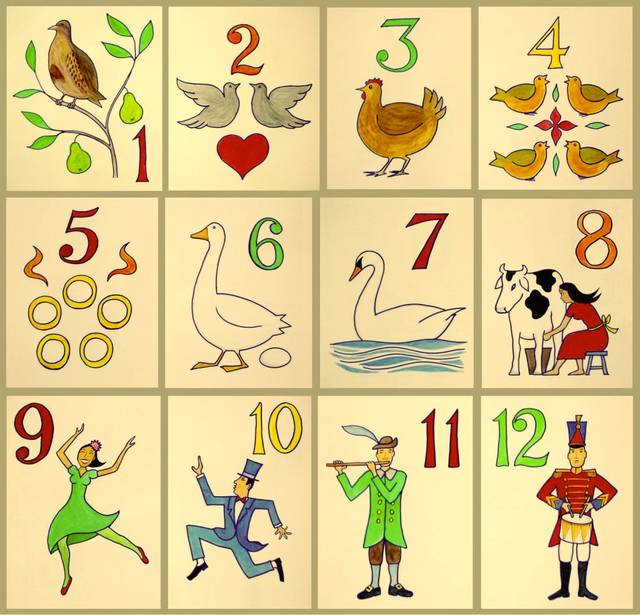Christmas traditions
Published 9:21 am Saturday, December 23, 2017

Art courtesy of clipartxtras.com
A representation of the 12 Days of Christmas as featured in the famous song.
Continuing the examination of the the myriad of traditions that go hand-in-hand with Christmas, the famous 12 Days of Christmas is the next tradition to unpack.
The 12 Days of Christmas is most famous for the song of the same name. But the tradition extends past the song and in many different ways. The entertainment sphere will feature 12 Days of Christmas marathons of themed specials and films, and some people even celebrate the holiday for 12 days with family activities and fun.
Much like many of the other Christmas traditions, the 12 Days of Christmas has its roots in religion.
According to www.whychristmas.com, the 12 Days of Christmas started in Europe during the middle ages and actually begins on Christmas day and ends Jan. 5 — which is the Twelfth Night.
Each of the 12 days celebrates a saint or some other event. Christmas day is, obviously, the birth of Jesus Christ. Dec. 26 is Boxing Day and celebrates the first Christian Martyr, St. Stephen.
Dec. 27 celebrates St. John the Apostle, who was one of Jesus’ disciples. Dec. 28 is the Feast of the Holy Innocents in which people honor the baby boys killed by King Herod when he was looking for Baby Jesus.
Dec. 29 celebrates St. Thomas Beckett, an Archbishop in the 12th century who was killed in Dec. 29 for challenging the king’s rule over the Church.
Dec. 30 celebrates St. Egwin of Worcester and Dec. 31 is New Year’s Eve, which is also in celebration of one of the earliest Popes — Pope Sylvester I. In many countries in Central Europe, New Year’s Eve is called Silvester.
Jan. 1 is in celebration of Mary, Mother of Jesus. Jan. 2 celebrates St. Basil the Great and St. Gregory Nazianzen — who were two important Christians of the 4th Century. Jan. 3 is The Feast of the Holy Name of Jesus, in which Jesus was officially named in the Jewish Temple.
Jan. 4 celebrates the first American saints, St. Elizabeth Ann Seton and the final day celebrates St. John Neumann, the first American Bishop.
A part of the history of the 12 Days of Christmas is the Twelfth Night. The Twelfth Night was when people held extravagant parties, usually those in the upper echelons of society. During these parties, the rolls of servant and master was reversed. During these parties, a special cake was eaten that included ingredients of eggs, butter, nuts, fruits and various spices — which turned into our modern fruit cake.
For more information on the 12 Days of Christmas visit https://www.whychristmas.com/customs/12daysofchristmas.shtml.




